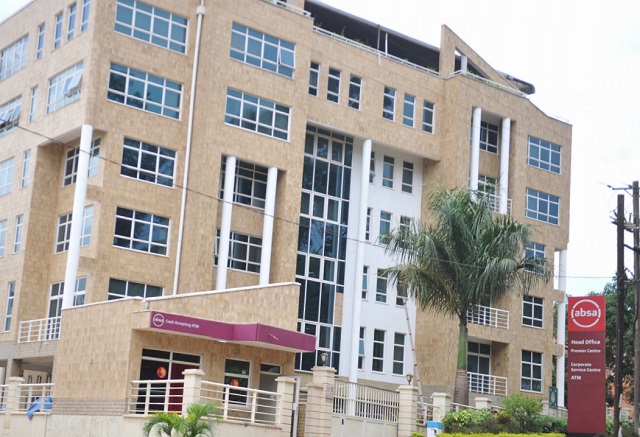
However, the financial services sector is not out of the woods yet
Kampala, Uganda | JULIUS BUSINGE | Uganda has for the fourth consecutive year maintained the 10th position in the Absa Africa Financial Market Index 2020, signalling a stagnation in performance.
The report, released by Absa Bank shows that Uganda scored 52 out of 100 in 2019/20 compared with 50 out of 100 scored in 2017/18, but still lagged behind a number of countries in Eastern and Southern Africa.
Absa Africa Financial Markets Index evaluates financial market development in 23 countries, and highlights economies with the most supportive environment for effective markets.
The Index facilitates meaningful debates about the maturity and accessibility of Africa’s financial markets, and records the openness to foreign investment of countries across the continent.
Ridle Markhur, a senior economist at Absa Group, said Uganda’s growth prospects in line with the AFMI will now largely depend on how the government continues to manage the spread of COVID-19, performance of the services sector, inflation, exchange rate movements and performance of imports and exports.
Markhur added that the private sector performance, Final Investment Decision (FDI) announcement for the oil and gas sector, public debt management and the emerging January 14 election tensions will be the other determining factors for Uganda’s economic growth and investment curve going forward.
This fourth annual Absa Africa Financial Markets Index comes at an unprecedented time in history when the region, and the world, face complex coronavirus induced challenges.
In the East African region, Uganda comes second behind Kenya and Tanzania and Rwanda, respectively.
Overall, the five highest ranked financial markets in the 2020 index are: South Africa, which remains in the top position; Mauritius, Nigeria, Botswana and Namibia. Ethiopia was ranked last.
Commenting on the Uganda’s score, Michael Atingi-Ego, the deputy governor, Bank of Uganda, who also delivered a keynote speech at the virtual meeting, said “while pessimists might see that (score) as stagnation, optimists will view it as stability and resilience.”
However, Atingi, said Uganda still has room for improvement going forward. He said the country’s strength in access to foreign exchange, ranking only behind South Africa, is anchored on a liquid forex market, healthy foreign exchange reserves that are above 5 months of import cover as well as a vibrant interbank swaps and forwards market that is supported by an active interbank money market.
Atingi, for instance, said Uganda scored strongly in market transparency, tax and regulatory environment, ranking 6th overall, and 1st in the East African Community (EAC). This, he said, reflects moderate risk of national debt distress, sustaining of the sovereign credit ratings at “B” by Standard and Poor’s and “B+” by Fitch Ratings, and compliance with International Financial Reporting Standards together with the commendable tax and accounting environment that is overseen by an independent oversight body – the Institute of Chartered Public Accountants of Uganda.
Atingi also emphasised that Uganda offers a competitive macroeconomic opportunity, ranking 6th overall, and 1st in the EAC, due to a record of strong economic growth always backed by appropriate monetary policy.
Economic analysts also suggest that accommodative monetary policy stance with the policy rate – the central bank rate – at a low of 7% together with a host of credit relief measures and fiscal stimulus have supported the economy during the Covid-19 pandemic.
Closing the gaps
Notwithstanding the strength, Atingi said Uganda has a lot to learn from its peers to catch up in the areas of, market depth, the capacity of local investors, as well as the legality and enforceability of standard financial market master agreements.
He said a host of reforms are underway to address the poor performance in some indicators, for better ranking in the future.
For example, to boost market depth by enhancing the size, liquidity and diversity of market products, he said BoU together with stakeholders, has undertaken a set of interventions including reforming the Primary Dealership System in October 2020; working on linking the Central Securities Depository with the Securities Depository at the Uganda Securities Exchange; participating in developing the framework for EAC Designated Market Makers for cross border trading in government securities; working towards a single EAC financial market by linking stock exchanges and central securities depositories among the partner states.
The other reforms he stated are; working with Bloomberg and primary dealers on market pricing to generate a Bloomberg Valuation curve that is likely to facilitate listing of Uganda government bonds on the frontier and emerging fixed income market indices; extending the yield curve with the introduction of a 20-year bond and working towards including forex swaps in the set of monetary operations tools.
He said BoU and other stakeholders are developing a platform to enable low-income earners to invest in government securities using mobile phones to boost capacity of local investors.
The bank also continuously promotes investing in government securities to the public, both locally and in the diaspora.
 The Independent Uganda: You get the Truth we Pay the Price
The Independent Uganda: You get the Truth we Pay the Price


